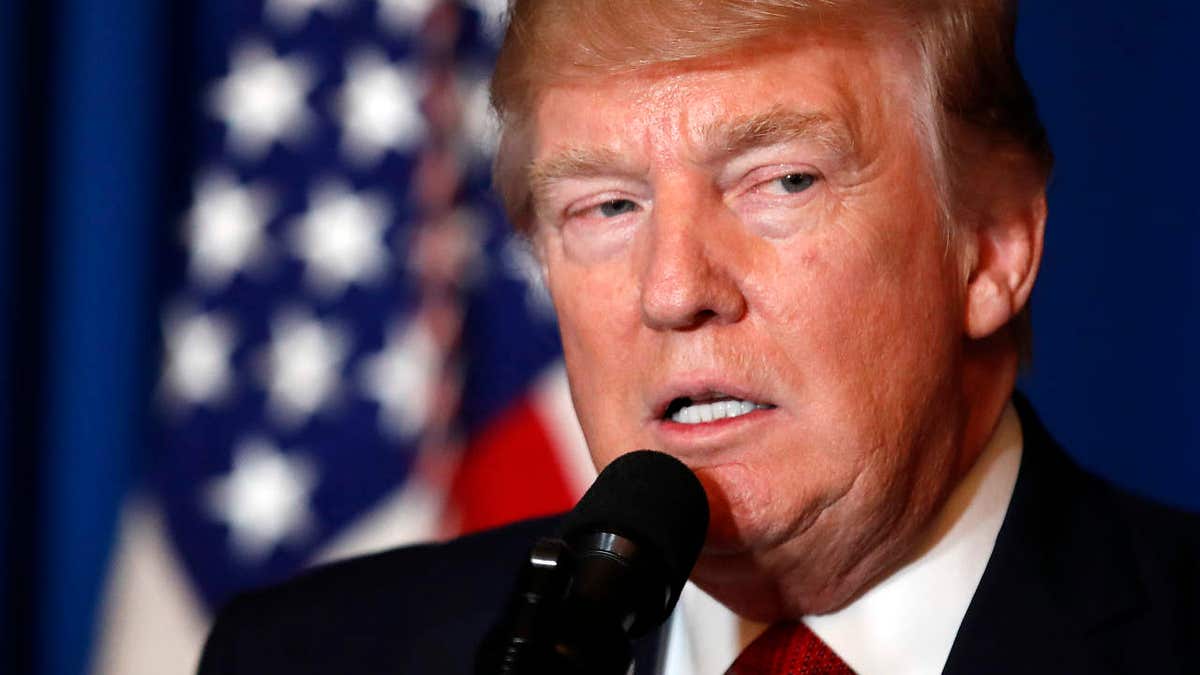
With Hillary Clinton, John Kerry, Chuck Schumer and a slew of liberal pundits supporting Donald Trump’s airstrikes against Syria, the president finds himself in an unusual position.
Even CNN’s Fareed Zakaria, who has twice called Trump a BS’er on the air (using the actual word), said the military attack was the moment that Trump became president.
There is, as I’ve said, a rally-round-the-president effect. One moment, the media were depicting Trump as a bumbling leader who couldn’t even pass a health bill. In the next, he was a bold and decisive commander-in-chief responding to Bashir al-Assad’s horrifying chemical attack against his own people.
But there are some dissenting voices, which I’ll get to in a moment.
Even some former Barack Obama aides, in backing Trump’s decision, are now admitting that the former president should not have declared a red line against Syria and failed to enforce it in 2013, settling instead for a deal on chemical weapons that obviously didn’t remove all of them from the country.
I’ve been wondering why Trump wasn’t hit harder on the charge of flip-flopping.
To be sure, many news outlets have noted that Trump has changed his position against intervening in the Middle East, a staple of his campaign rhetoric. As recently as October, he said Clinton might start World War III in Syria. And Trump tweeted at Obama four years ago. “TO OUR VERY FOOLISH LEADER, DO NOT ATTACK SYRIA - IF YOU DO MANY VERY BAD THINGS WILL HAPPEN & FROM THAT FIGHT THE U.S. GETS NOTHING!” Trump tweeted then.
My conclusion: Journalists care far less about flip-flopping if you flip in their direction. And foreign policy commentators tend to reflect a Beltway bias toward U.S. military intervention.
For the moment, Trump is letting the results speak for themselves, even as Syria has used the damaged air strip to resume bombing the town where the chemical attack took place. Kellyanne Conway told me yesterday on “Media Buzz” that there are no immediate plans for a televised speech on the issue, but that Trump went out of his way to take a nonpartisan approach.
So what happens next?
From the right, National Review says: “If it is a one-off, this strike is the very definition of a symbolic pinprick…
“We are skeptical of the wisdom of this approach. It may be that the strike is enough to deter Assad from future chemical attacks, but it also could have unwelcome unintended consequences. If Assad decides to defy us, we will be forced into further action against his regime without any idea of what would replace it.”
The Weekly Standard questions the legality: “Lost in the praise for the strike is the lingering constitutional question: On what grounds did the White House rest its decision to attack a nation with which we are not formally at war and which has not attacked us? Secretary of State Rex Tillerson's statement that ‘if there are weapons of this nature available in Syria, the ability to secure those weapons and not have them fall into the hands of those who would bring those weapons to our shores to harm American citizens’ is lame if it's meant to satisfy the conditions for defensive preemption. Hitting the air base was no more likely to secure those weapons than taking out cell towers so Assad can't call his bankers in London and Geneva.”
Laura Ingraham, the radio talk show host who spoke at Trump’s convention, does not sound pleased, tweeting: “Missiles flying. Rubio's happy. McCain ecstatic. Hillary's on board. A complete policy change in 48 hrs.”
From the left, Slate objects to the praise on the grounds that, well, Trump is a dangerous guy:
“If you are looking for extra reasons why these commentators may be looking to extend a warm hand to Trump, here's another one: There is something comforting about Trump acting in a manner that much elite opinion has been in favor of for years. Barack Obama was criticized for not launching an attack on Assad after the latter crossed Obama's ‘red line, and many people have made cases—ranging from completely legitimate and thoughtful to entirely bonkers—that America should be more involved in the anti-Assad side of the Syrian conflict…
“But Trump is not—and will never be—a normal president. He is an uninformed and dangerously unstable one. If he wants to conduct military action without congressional approval, he should be challenged, not lauded."
Of course the media need to keep pressing these questions: What is Trump’s larger strategy? What is he willing to commit in terms of military resources? What risks is he prepared to take? What if Americans are captured in this effort? What about the fallout with Russia? Can the United States really affect the Syrian civil war without boots on the ground?
As retired generals flood the airwaves to praise the airstrikes, the media must avoid getting swept away as they were in 2003, when most news organizations covered the runup to the Iraq war with minimal skepticism.
At the moment, Trump is basking in some rare praise. But the situation in Syria may look very different in the coming weeks and months.












































